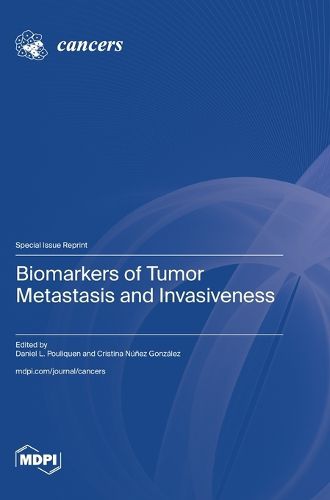Readings Newsletter
Become a Readings Member to make your shopping experience even easier.
Sign in or sign up for free!
You’re not far away from qualifying for FREE standard shipping within Australia
You’ve qualified for FREE standard shipping within Australia
The cart is loading…






This title is printed to order. This book may have been self-published. If so, we cannot guarantee the quality of the content. In the main most books will have gone through the editing process however some may not. We therefore suggest that you be aware of this before ordering this book. If in doubt check either the author or publisher’s details as we are unable to accept any returns unless they are faulty. Please contact us if you have any questions.
The molecular characterization of tumors, investigated particularly through proteogenomic analyses, has led to a revolution in cancer research. Over the last decade, the development of quantitative proteomics, together with other major technological breakthroughs, have identified candidate biomarkers for diagnosis, prognosis, and drug efficacy/resistance follow-up. These improvements have allowed researchers to explore the capability of cancer cells to invade, metastasize, and finally, destroy normal tissues and organs. In parallel, new hypotheses have been formulated, and the means cancer cells use to exploit their surrounding environment have begun to be deciphered, leading to new therapeutic approaches. This Special Issue covers all these aspects, revealing new, recent insights on the molecular networks controlling the tumor invasiveness process; dynamic interactions between cancer cells; and the host stroma, stemness and epithelial-to-mesenchymal transition, as well as the links between inflammation and tumor metastasis. The scope is extended to studies on all cancer histological types (original research articles and reviews) conducted on experimental tumor models, tumor samples, and/or biofluids from patients with cancer.
$9.00 standard shipping within Australia
FREE standard shipping within Australia for orders over $100.00
Express & International shipping calculated at checkout
This title is printed to order. This book may have been self-published. If so, we cannot guarantee the quality of the content. In the main most books will have gone through the editing process however some may not. We therefore suggest that you be aware of this before ordering this book. If in doubt check either the author or publisher’s details as we are unable to accept any returns unless they are faulty. Please contact us if you have any questions.
The molecular characterization of tumors, investigated particularly through proteogenomic analyses, has led to a revolution in cancer research. Over the last decade, the development of quantitative proteomics, together with other major technological breakthroughs, have identified candidate biomarkers for diagnosis, prognosis, and drug efficacy/resistance follow-up. These improvements have allowed researchers to explore the capability of cancer cells to invade, metastasize, and finally, destroy normal tissues and organs. In parallel, new hypotheses have been formulated, and the means cancer cells use to exploit their surrounding environment have begun to be deciphered, leading to new therapeutic approaches. This Special Issue covers all these aspects, revealing new, recent insights on the molecular networks controlling the tumor invasiveness process; dynamic interactions between cancer cells; and the host stroma, stemness and epithelial-to-mesenchymal transition, as well as the links between inflammation and tumor metastasis. The scope is extended to studies on all cancer histological types (original research articles and reviews) conducted on experimental tumor models, tumor samples, and/or biofluids from patients with cancer.